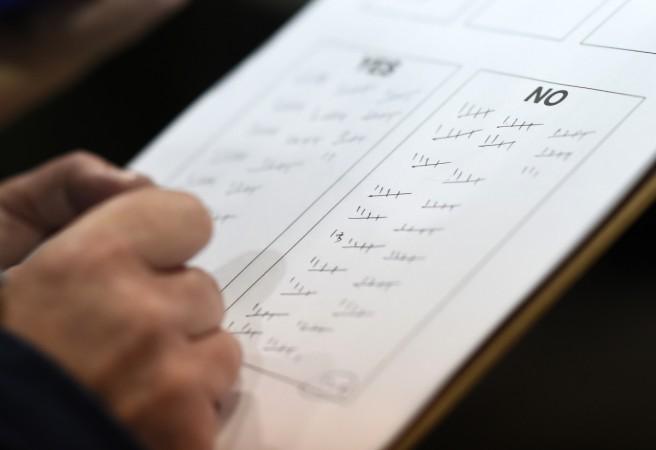
Even before the actual results were announced, it was pretty clear that Scotland had decided to say 'No' and continue with its more than 300-year-old alliance with the rest of the UK, deciding not to change the course of British history.
Happiness and despair were seen in equal measure on the faces of Scottish people as the results slowly trickled in making it clearer and clearer with each passing minute, that majority of the Scotland's population never wanted a 'divorce' with the UK.
With the results now clear that the UK will now not break up – much to the relief of David Cameron and a huge number of Britons – there are many 'Yes' supporters pondering on what could have gone wrong.
There are many 'Yes' campaigners staring in deep reverie unable to solve the puzzle on how the upbeat 'yes' sentiments that was displayed with much pomp over the months seemed to have now fallen flat with complete defeat. It is difficult for some to digest the outcome while others cheer the result.
Here are the top five reasons why Scotland's referendum outcome was a 'No':
1. Scottish people of other British decent
Among all the goings-on in the Scottish independence referendum, it was perhaps never given a deep thought on what the people who are in Scotland but originally belonging to other regions in the UK must have to say on this.
Although the sentiments to gain independence was running high, they were among the majority of 'patriotic' people who would have wanted to see UK the way it has been since 1707, when England and Scotland unified to become the 'United Kingdom'.
2. Border Towns
Votes from the border towns might have affected the final results as majority of them are likely to have said no to a broken country where an undesirable border would have been drawn in a place they called their 'home' for centuries.
Inconsistencies on whether or not there would actually be borders built could have led people in the border towns into deep confusion. Although there weren't much voters there, many of them would have voted against independence, putting more weight on the 'No' side.
3. Pensioners
There are strong logical possibilities that pensioners would have had a sense of discomfort over the uncertainties on the subject of pension, and it is not difficult to guess there were many people from older generation voting on Thursday's referendum.
No one knows what will happen to pension funding in a new nation, which would take a long time to forget its past and rise as independent nation. Moreover, even if it was a 'Yes' to Scotland, the country would be declared independent only in 2016, thereby affecting the older generations the most.
4. Uncertainties above all
More number of people would have considered the 'uncertainties 'as more important factor for deciding than the glory of being independent from UK.
While people are not sure what they would benefit from it personally, there were others who didn't believe if EU would be helpful in nurturing Scotland's growth. The following thought processes in people would have nudged them to go for 'no': Will Scotland make it on its own? Should Scotland really have more powers? Aren't we happy with the choices of Westminster? Does Scotland cost more than it generates? Will we be happy on the long run? And more.
5. Oil Resources
There is also the factor of financial gain. The vast oil resources in the Scottish area is too much for Scotland alone to use. Many people might have considered it fair that the rest of the UK also shares the advantage rather than Scotland alone reaping the benefits of the financial source that was created by the UK as a whole.
















